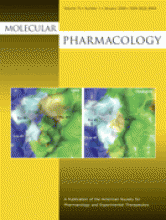Abstract
The G2/M cell cycle checkpoint is regulated by a multitude of signaling pathways after genotoxic stress. Herein, we report that treatment with the 90-kDa heat shock protein (Hsp90) molecular chaperone inhibitor 17-allylamino-17-demethoxygeldanamycin (17AAG) selectively abrogates the G2/M checkpoint induced by 7-ethyl-10-hydroxycamptothecin (SN-38), an active metabolite of irinotecan, in p53-null compared with p53-intact HCT116 colon cancer cells. The basis for this selectivity can be explained in part by the lack of p21 induction in p53-null cells. In accord with published results, we could show that treatment with 17AAG resulted in depletion of Chk1, a known Hsp90 client protein. In addition, we observed a time- and dose-dependent decrease in Wee1 kinase level, a negative regulator of mitosis, after 17AAG treatment in gastrointestinal cancer cells. Depletion of Wee1 protein preceded mitotic entry induced by 17AAG, and this decrease could be partially rescued by cotreatment with a proteasome inhibitor. Coimmunoprecipitation experiments showed that Hsp90 and Wee1 interacted in whole cells, and 17AAG treatment decreased the degradative half-life of Wee1, indicating that Wee1 is another Hsp90 client in mammalian cells. Knockdown of Chk1 and Wee1 by short interfering RNA each resulted in abrogation of the G2/M checkpoint induced by SN-38. The combination of SN-38 and 17AAG was shown to be synergistic in p53-null but not in parental HCT116 cells by median effect/combination index analysis. Taken together, 17AAG specifically inhibits the G2/M checkpoint in p53-defective cells by down-regulation of two critical checkpoint kinases, Chk1 and Wee1.
Footnotes
-
↵1 Early studies indicated that the ATM→ Chk2 pathway played a critical role in regulating cdc25A turnover; however, recent data suggest that Chk2, but not Chk1, may be dispensable for controlling the stability of cdc25A (Jin et al., 2008).
-
The preliminary results of this work were presented previously at a mini-symposium of the 2005 American Association for Cancer Research Annual Meeting [Tse AN, Sheikh TN, and Schwartz GK (2005) The Hsp90 inhibitor, 17-allylamino-17-demethoxygeldanamycin (17AAG) abrogates the G2/M DNA damage checkpoint and induces apoptosis selectively in p53-defective colon cancer cells by down-regulating both Chk1 and Wee1. Proc Amer Assoc Cancer Res46:Abstract 6159].
-
This work was supported in part by a Career Development Award from the American Society of Clinical Oncology and a K08 grant from the National Cancer Institute (to A.N.T.).
-
ABBREVIATIONS: MAPKAPK2 or MK2, mitogen-activated protein kinase-activated protein kinase 2; 17AAG, 17-allylamino-17-demethoxygeldanamycin; DAPI, 4′-6-diamidino-2-phenylindole; PAGE, polyacrylamide gel electrophoresis; SN-38, 7-ethyl-10-hydroxycamptothecin; Hsp90, 90-kDa heat shock protein; siRNA, short interfering RNA; PCR, polymerase chain reaction; ND, no drug; UCN-01, 7-hydroxystaurosporine; MG-132, N-benzoyloxycarbonyl (Z)-Leu-Leu-leucinal; CI, combination index; Fa, fraction affected; CHIR-124, ((S)-3-(1H-benzo(d)imidazol-2-yl)-6-chloro-4-quinuclidin-3-ylamino)quinolin-2(1H)-one.
-
↵
 The online version of this article (available at http://molpharm.aspetjournals.org) contains supplemental material.
The online version of this article (available at http://molpharm.aspetjournals.org) contains supplemental material. - Received July 28, 2008.
- Accepted September 26, 2008.
- The American Society for Pharmacology and Experimental Therapeutics
MolPharm articles become freely available 12 months after publication, and remain freely available for 5 years.Non-open access articles that fall outside this five year window are available only to institutional subscribers and current ASPET members, or through the article purchase feature at the bottom of the page.
|







